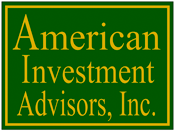October 14, 2001
Dante once wrote, “In the middle of the journey of my life I found myself in a dark wood, for I had lost the right path.” As investors, we have been stuck in a dark “investment” wood ever since March of 2000. Every time there seems to be a glimmer of hope of us coming out of that wood into the glorious shimmering sunlight, it seems that we get pulled back in. First, it was that the Federal Reserve increased interest rates too much for too long followed by the imploding of the internet bubble. Then there was the presidential election uncertainty, followed by a bout of sparing with OPEC over oil prices. In addition, earlier this year we learned that technology and telecommunication companies had billions of dollars tied up in excess inventory and then finally, the World Trade Center calamity. Furthermore, from an investment point of view, it seems that ever since the tragedy of September 11th Wall Street has lost the right path. The irrational exuberance of the latter part of the 1990’s has given way to the exaggerated pessimism that we experience today.
Nevertheless, some of the current pessimism is understandable. Since September 11th, the airline industry has grounded to a halt – laying off more than 100,000 workers. The insurance and re-insurance industries face the prospect of billions of dollars in claims. Brokerage houses and investment banks have seen their revenues dwindle. Consumers have suddenly put on hold purchases of durable goods such as automobiles. Even oil companies have begun to feel the pinch due to the marked reduction in U.S. demand. Consumer confidence is at an all time low, manufacturing is still contracting and economic growth is expected to dip into negative territory in the third quarter. In short, we currently have all the underpinnings of an economic recession.
Pessimism, as we all know, is a cancer that feeds on itself. If we think of ourselves as being a part of the market place, then all of us taken as a whole constitute the market. Gradually, if each one of us becomes pessimistic about the future of the economy and the markets, very soon the whole market turns sour. In the final analysis, it is the invisible hand of our collective enthusiasm or negativism that drives the markets.
However, the U.S. economy, just like its citizens, has a strong resolve. The monster of yesteryear – inflation – is now dormant. Unemployment, though relatively high compared to the latter part of the 1990s, is still under control. The housing market, thanks to depressed mortgage rates, is still robust. Though many pundits may try, forecasting the future of the U.S. economy is a fool’s game. Nobody can predict future world events. In May of this year when gas prices reached $2 per gallon, no one could have ever known that it would drop as precipitously as they did by the end of September. Likewise, no one could have foreseen the heinous crime inflicted on the U.S. on September 11th. In finance, there is a concept called systematic risk (or market risk) – that risk which we cannot control or diversify away. At the other end of the spectrum, however, there is nonsystematic risk. This is business risk that can be diversified. As advisors, our fiduciary duty is to strive to control non-systematic risk.
This year has been a true baptism by fire for us at American Investment Advisors. In between all the chaos of the past year we also lost the patriarch of the company, Allan Charles Topp, on July 31st. In the realm of investing there is no doubt in our minds that we might experience a chilly fall and a bitter cold winter. This is also not the first time we have been through strife and it surely will not be the last. Nevertheless, we are warriors. Unflinching, unwavering – resolute in the face of adversity. We stand by our convictions that the best way to add value to our clients and to guide them through these perilous times is to build well balanced portfolios that include the best available funds in the market. Ultimately, it may be as Teddy Roosevelt said:
“For unless you have been in the deepest valley you’ll never know how magnificent it is to be on the highest mountain.”
On a separate note, in accordance with Allan’s business succession wishes, Bill will become the owner of the firm once Allan’s estate settles. Under securities law, when ownership of an investment advisory firm changes, the contracts being served by the firm are considered to be “assigned” and, in accordance with the terms of your contract with us, contract assignments require your consent. Because of the circumstances and technical nature of this assignment, we will assume you have granted your consent to this assignment by allowing us to continue to provide advisory services to you. If, however, you wish to terminate your contract, please contact us. As you are aware, we continue to be committed to doing the best job we can in attempting to achieve your account objectives and look forward to serving you in the years to come.
Sincerely,
President
Vice President
Investment Assistant

